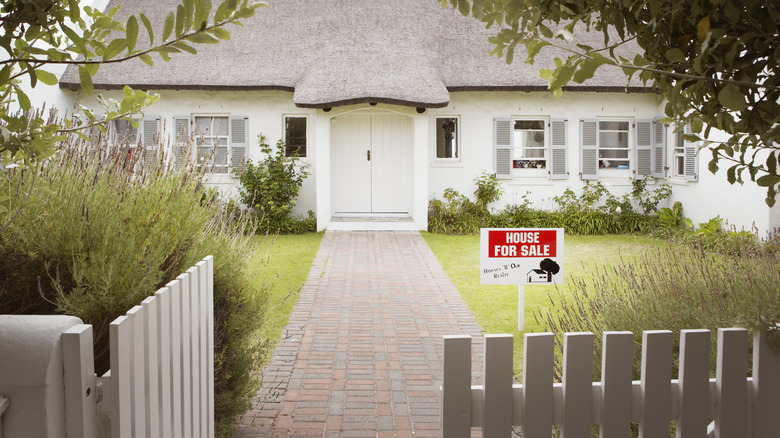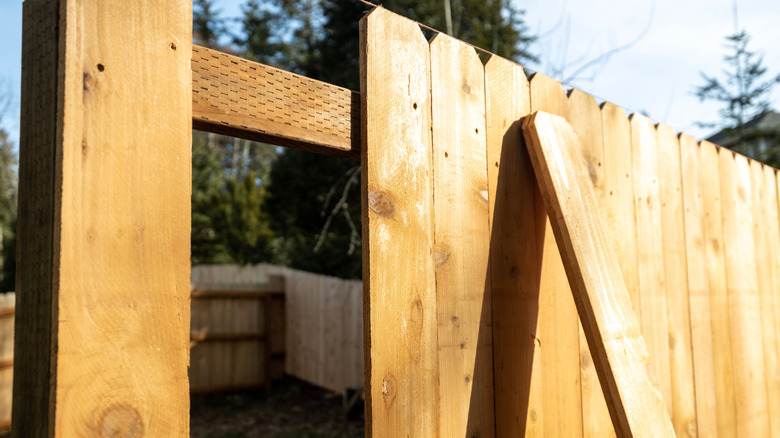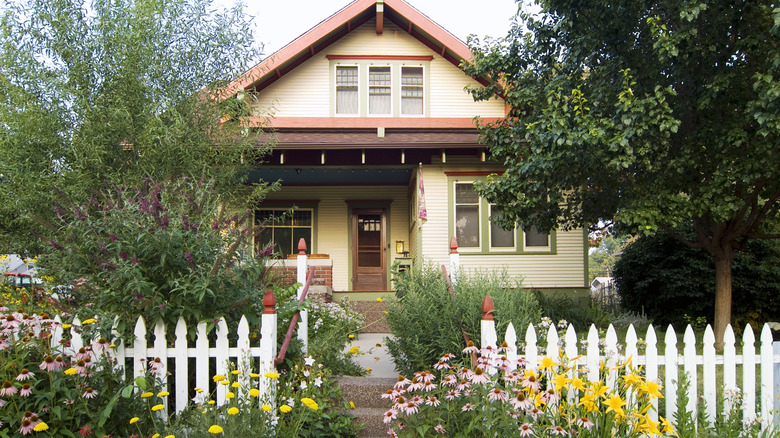Will A Fence Boost Your Home's Value? Here's What You Should Know
If you are getting ready to sell your home, you are likely considering all the ways in which you may be able to boost your home's value. One area many sellers focus on is the home's exterior, which is generates a lot of interest to draw in buyers. Landscape maintenance and exterior paint jobs are a great place to start, but one upgrade you may want to think twice about is fencing and whether this addition is really worth it.
A little research into fencing comes up with some confusing and noncommittal information, but from an appraisal standpoint, the answer is a pretty clear-cut no. The desire for fencing is typically subjective among buyers, making it a preferential amenity, which means that buyers are unlikely to consider it a must-have feature when it comes to a home's value. Yet, while appraisers don't consider fencing in terms of home value, there are other ways it could assist in selling a home. So, whether you invest in this project could come down to the specific details of your home, its location, and what kind of potential buyers you want to attract.
Why fencing doesn't boost your home's value
Some people want a house with a fence while other people don't, but regardless, it's a feature that's unlikely to determine whether or not a potential buyer wants to purchase your home or not. Moreover, when contemplating a fence addition, most professionals determine the numbers don't add up. Installing a new fence isn't cheap, with its average cost around $3,300 and increasing all the way up to $7,000. Sometimes a cost like this can be worth it, but most appraisers find that fencing's return on investment is relatively low, meaning that you won't recoup your cost. KW Appraisal Group specifically puts fence's ROI (return on investment) at around 30 to 40% of the installation costs.
When home projects cost more than you'd like to pay, owners often turn to DIY. While it is possible to build a fence for your landscape and install it yourself, it takes more than a beginner's experience and comes with a lot of required research, including things like code requirements for fences. For some owners, this DIY home project route to fencing also might not be possible ... or worth it.
Regardless of increased value, fencing may still be a useful way to attract potential buyers
While adding fencing doesn't boost your home value from a strict appraisal standpoint, there are other factors you can consider to determine whether or not to move forward. Where you live and what type of home you have are all factors that may impact whether or not you want a fence. For example, if you live near places that are unsightly or cause extra noise like freeways, water treatment plants, and even schools, a fence can go a long way in separating your home from those areas and blocking them from view. This is often important to potential buyers.
Similarly, if you live in a family-friendly neighborhood, fencing can be an important addition as it keeps pets from escaping and can create a safe space for children to play outdoors. Adding fencing may not boost your home value to an appraiser, but it can help draw in and convince the right buyer based on those factors.
If you decide to move forward with fencing to entice potential buyers, make sure it's the right kind of fencing. Wood fencing is viewed as a classic choice, vinyl fencing can mimic wood and requires less maintenance, and wrought iron is great for security purposes. These different types of fences will also suit different styles of homes. Wood fencing is particularly well loved for a craftsman-style house, while wrought iron fences can complement both Victorian and modern style homes really well.


